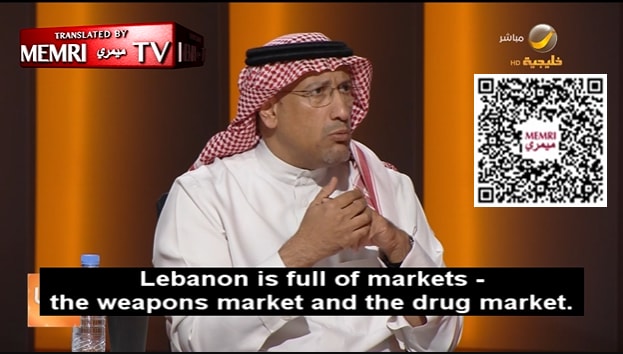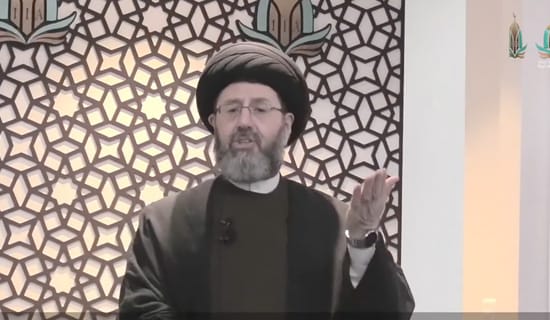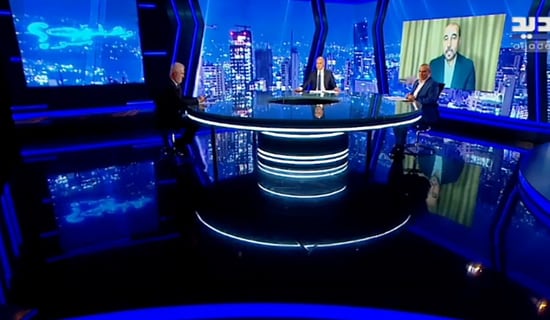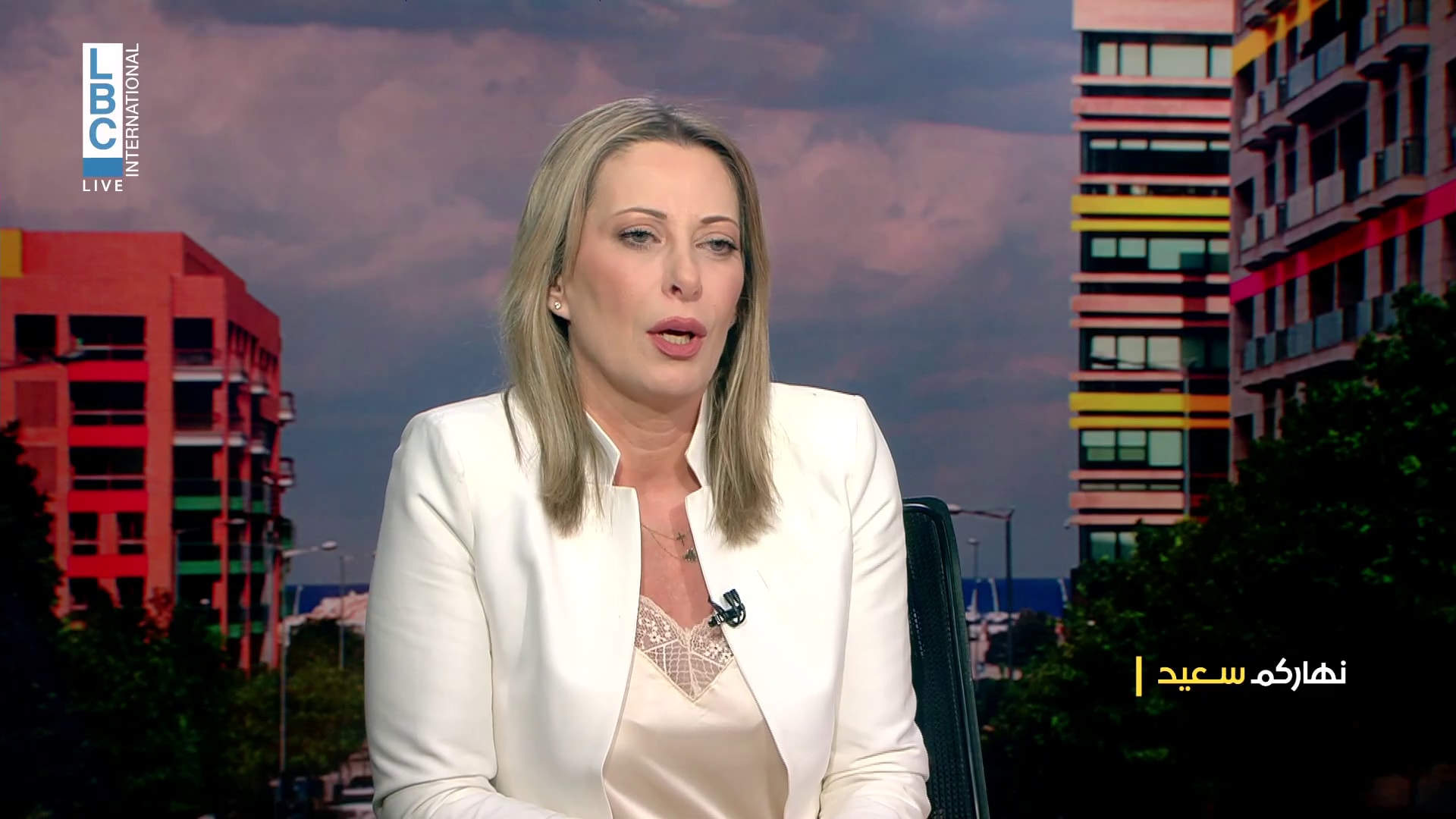
This clip is a compilation of interviews with Saudi experts about the current diplomatic tensions between Saudi Arabia and Lebanon, which began when Lebanese Information Minister George Kurdahi expressed support for the Houthi rebels in Yemen (see MEMRI TV Clip No. 9152). These interviews aired on Rotana Khalijiya TV (Saudi Araba) on November 4-7, 2021.
On November 4, Saudi international relations expert Dr. Ahmad Al-Ansari said that the only things that Saudi Arabia has gained from its ties with Lebanon are disasters, drugs, and national security issues. He also said that the root of the problem is Hizbullah's Hassan "Captagon" Nasrallah, that Lebanon is sick and dying, and that Lebanon does not contribute anything to the world. On November 5, Saudi international relations expert Sami Al-Morshid said that through Hizbullah, Iran uses Lebanon as infrastructure for exporting terrorism to Syria, Iraq, and Yemen. He also said it exploits Lebanon in order to distribute drugs like Captagon throughout the Arab world in order to make up for its financial losses. On November 7, Abdallah Al-Assaf, a Saudi communications lecturer at Al-Imam University, said that the Captagon pills smuggled into Saudi Arabia from Lebanon are enough to destroy the entire Arab world. For more about the crisis between Saudi Arabia and Lebanon, see MEMRI TV Clips Nos. 9165 and 9172.
Ahmad Al-Ansari: "People are saying that [Lebanon] is on its way to hell. Well, it’s already there. In order to be considered a state, you must have certain elements. Unfortunately, Lebanon has lost all these elements. There is no indication that Lebanon is still a state that exercises its international functions, or that is subject to international law. There is no government, there are no services, there is nothing. We can compare Lebanon to a sick man, on his deathbed, waiting for... Unfortunately. This is sad, really. Look, [the Quran says:] 'Every soul is held in a pledge for its deeds.' This is what they have reaped..."
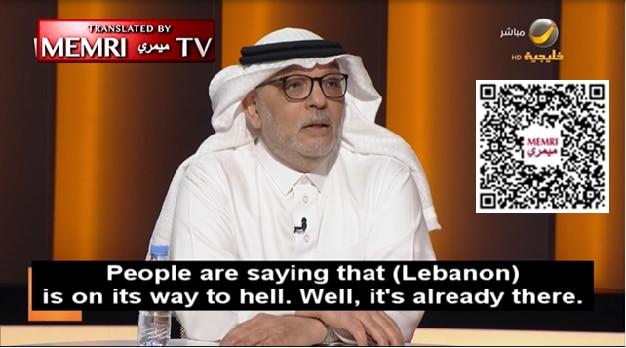

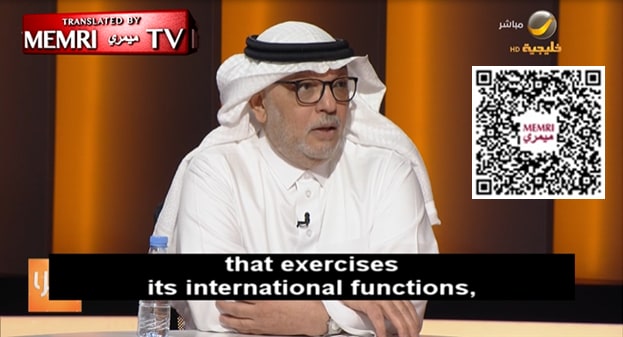
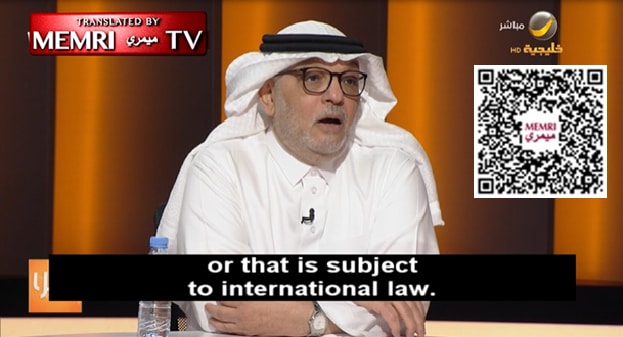
Journalist: "We are talking about the tremendous effect on Arab people who are held hostage by a political party [Hizbullah] that abides by expansionist Iranian policies."
Al-Ansari: "I always say that there is no such thing as 'the Arab world'. It is the Arabic language that unites us. There is an Islamic world, which shares its faith. There is nothing that ties us to Lebanon, except for the language. Most of the problems that befell Saudi Arabia and the Gulf countries came from the countries that claim to be Arab. Maybe friendship ties us to the Lebanese people, but nothing else, I am sad to say.


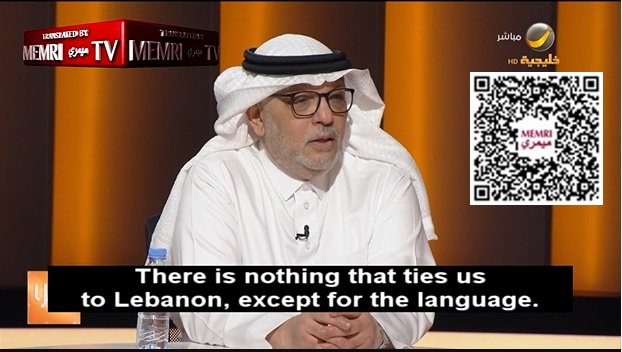
[...]
"Take a look at the last two decades, or even since the 1990s – what has Saudi Arabia gained from its ties with such countries? The plots, the disasters, the drugs, the targeting of Saudi national security and the Saudi people, and even to Saudi Arabia as an entity...




"Recall the 1990s, when Saddam invaded Kuwait. See who stood by Saudi Arabia and who stood against it. I do not want to name the countries, everybody knows who conspired against Saudi Arabia, and who rejoiced when missiles were fired at Saudi Arabia. Lebanon is on that list. The world has not benefited from Lebanon in any way.

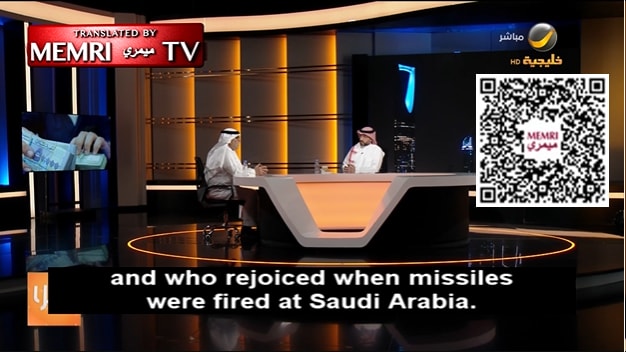

[...]
"There used to be a time when it was called the 'Switzerland of the East,' and indeed it was very beautiful. I visited Lebanon in 1971. I can say that it used to be one of the most beautiful countries at the time, but today they cannot even collect their garbage. They are exporting their problems to Saudi Arabia and the Gulf countries, I am sad to say. Some countries believed that the aid that Saudi Arabia is giving [Lebanon] is Saudi Arabia’s duty, and that Saudi Arabia is required [to aid Lebanon]. The Lebanese Prime Minister spoke about 'our Arab brothers,' even though the Lebanese view themselves as people of the East, not as Arabs.
[...]
"Lebanon’s cabinet has 24 members. Eight are from Hizbullah, eight are loyal to Hizbullah, and eight fear Hizbullah.
[...]
"Who is the root of the problem? It is Hassan 'Captagon' [Nasrallah], the leader of the Hizbullah militia.


[...]
"There are militias supported by the Iranian government. Hassan [Nasrallah] declared in front of the whole world: 'Our food, our drink, our missiles, and our money is from Iran.' Only when he was pushed into a corner like a rat, did he begin fawning and asking the Lebanese government to help him improve his relations with the Gulf countries. Why don’t you go to your Iranian masters? Let the Iranians open a TV station for George Kurdahi. Let him work there."
[...]
Sami Al-Morshid: "Iran wants [Lebanon] to obey Hizbullah so that it can use it as a [thorn] in the side of the Arab nation, and use it as an infrastructure of terrorists that it sends sometimes to Syria, sometimes to Iraq, sometimes to Yemen, and sometimes to deliver drugs and Captagon here and there, in order to increase its budget and make up for its losses as a result of Iran’s failing policies."
[...]
Abdallah Al-Assaf: "The drugs that come to us from Lebanon are measured by the ton – not by [individual] pills. You cannot even count them. 600 million pills were smuggled into Saudi Arabia. This much is enough to destroy the entire Arab world, and then some. It is said that the Arab world has 300 million people. This means two pills for each person."
Journalist: "Is this the amount that was smuggled?"
Al-Assaf: "No, this is only what was caught. Then, to top it all off, along comes the 'head of diplomacy' [Lebanese FM Abdullah Bou Habib] and he speaks with twisted logic, the logic of drug barons, and says: 'There is a market for everything in the world – a market for weapons, a market for drugs, a market for everything that is forbidden.' Does the existence of a market justify your smuggling? Lebanon is full of markets – the weapons market and the drug market. Does that justify me becoming a drug dealer and sending drugs to Lebanon?"
